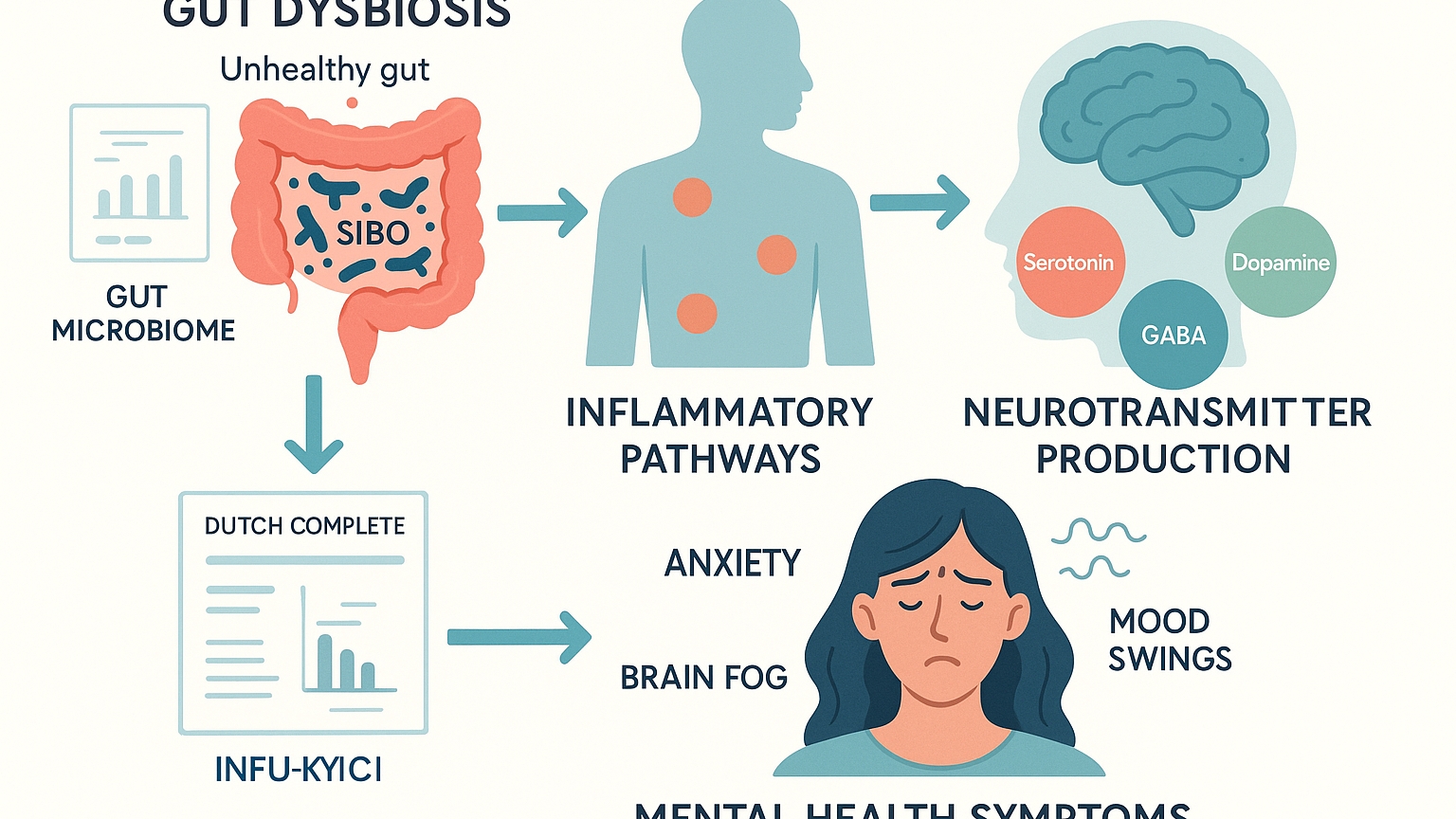Anxiety or Depression? Don’t Forget the Gut.
At our office, we’ve noticed a consistent pattern: patients struggling with anxiety, chronic stress, or low mood often also have underlying gut issues. It’s not always obvious at first — but when we dig deeper using tools like the DUTCH Complete test, the connection becomes clear.
One of the markers we always check is Indican — a powerful clue into the state of your gut microbiome. When Indican levels are elevated, it often points to gut dysbiosis or even SIBO (small intestinal bacterial overgrowth) — both of which can contribute to inflammation, neurotransmitter imbalance, and mood instability.
A Quick Case Example:
A 33-year-old woman came in for hormone and energy issues, but what stood out was her persistent anxiety and digestive discomfort. Her DUTCH test showed not only low cortisol and poor adrenal recovery — but a high Indican marker as well.
This helped us confirm that gut imbalance was playing a role in her emotional health.
We adjusted her diet, focused on gentle gut healing strategies, and worked on sleep hygiene, nervous system regulation, and targeted supplements. Within weeks, she started to feel more calm, less bloated, and emotionally more resilient.
What This Tells Us:
Mood symptoms aren’t just in the mind — they’re deeply tied to what’s happening in the gut. By using functional lab data like DUTCH, we’re able to see the full picture and design personalized protocols that support both emotional and physical healing.
If you’re dealing with stress, anxiety, or depression — it may be time to check your gut, too.

